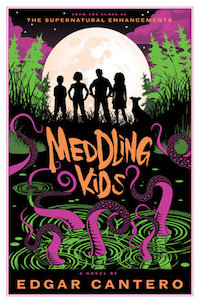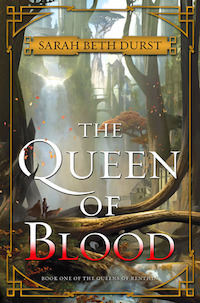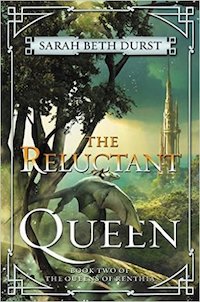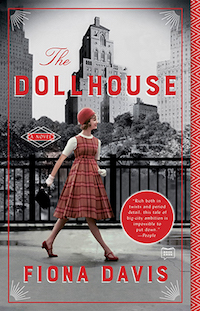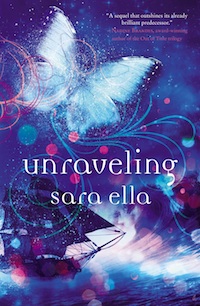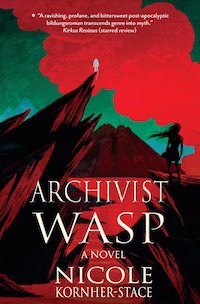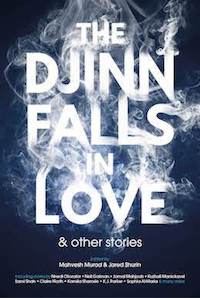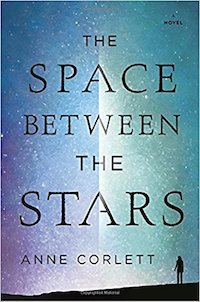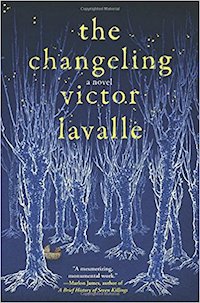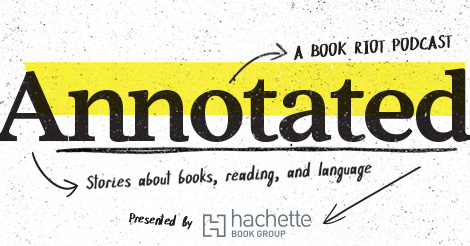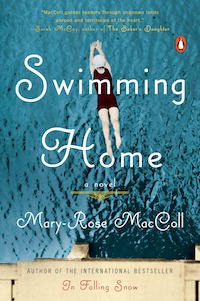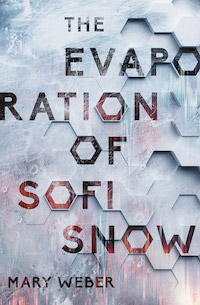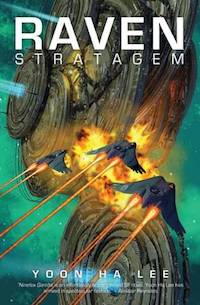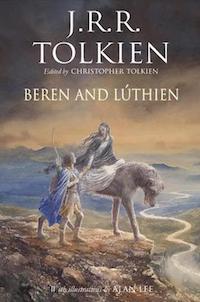Happy Friday, redshirts and rogues. Today we’re talking about Roses and Rot and Kai Ashante Wilson’s novellas, plus sibling stories, dialect on the page, a new Charlaine Harris show, and more. Here be were-tigers.
This newsletter is sponsored by The Folio Society edition of American Gods by Neil Gaiman.
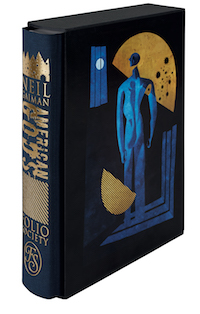 For nearly 70 years, The Folio Society has been creating beautiful, illustrated, hardback books and the Folio collector’s edition of Neil Gaiman’s American Gods is guaranteed to delight fans of this modern classic. It has been illustrated, at the author’s request, by long time collaborator Dave McKean with 12 original illustrations, 3 of which are double page spreads. Dave has also written an insightful introduction on the specific challenges of illustrating such an established and well-loved work. The text has been lauded by Neil as his preferred version and copies are available exclusively from www.foliosociety.com.
For nearly 70 years, The Folio Society has been creating beautiful, illustrated, hardback books and the Folio collector’s edition of Neil Gaiman’s American Gods is guaranteed to delight fans of this modern classic. It has been illustrated, at the author’s request, by long time collaborator Dave McKean with 12 original illustrations, 3 of which are double page spreads. Dave has also written an insightful introduction on the specific challenges of illustrating such an established and well-loved work. The text has been lauded by Neil as his preferred version and copies are available exclusively from www.foliosociety.com.
Do you need more siblings in your sff? We’ve got a post for that. This is always an odd thing for me to think about, because I tend not to notice siblings (absent or present) in novels, unless it is somehow super-important to the story. Or they are twins, because twins! I have two brothers, and was one of those kids who dreamed of only childhood or being whisked away by my REAL parents (my poor actual parents, sorry Mom and Dad). My sibling-blindness notwithstanding, there’s no doubt that family dynamics can be an excellent addition to a plot. In fact, we’ve got a sister story in the reviews today!
Let’s talk about heroines! We’ve got a list of heroines that will remind you of Wonder Woman, and a list for badass middle-aged heroines. I will take both, please and thanks! Especially the latter; it’s lovely to see women my own actual age on the page, as easy as it is to tap into my internal 16-year-old.
We’ve talked about naming conventions; now let’s talk about dialect! What does the future sound like? Brandon O’Brien has some thoughts. Personally, I’m a sucker for fictional slang and books written in patois, as we’ll talk about more below; the more voices, the merrier my brain is. (Although yes, agree, stop trying to make “schway” happen.)
Do you need more supernatural creatures with drama on your TV? Charlaine Harris’s other series Midnight, Texas has been made into a show and premieres next Monday, July 24. With Teen Wolf (the MTV one) ending, I am considering adding this to my rotation even though I never did watch True Blood. (Which I will get to some day, I swear.)
Bring on the cute: here is a book of highly adorable illustrations about the crew of Firefly and their adventures on Earth! I might need this for that cross-stitch pattern alone? Ahem.
Today we have no babies or parenting — instead, we have siblings and possibly-doomed love! That felt like it deserved an exclamation mark!
Roses and Rot by Kat Howard
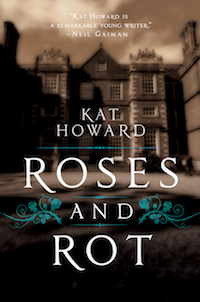 Here is a fantasy novel about an artist retreat run by the Fae. Half of you are already sold, like I was — it seems so simple, so obvious! How is this the first time (at least to my knowledge) that someone has done this?! I am so glad Howard did, because this novel is a delight, and it’s newly out in paperback.
Here is a fantasy novel about an artist retreat run by the Fae. Half of you are already sold, like I was — it seems so simple, so obvious! How is this the first time (at least to my knowledge) that someone has done this?! I am so glad Howard did, because this novel is a delight, and it’s newly out in paperback.
Sisters Imogen and Marin are both talented artists — Imogen is a writer and Marin a dancer — who come from a dysfunctional, abusive home. They’ve grown up and (mostly) put their past behind them, and now both have been accepted to a prestigious program that will give them the time, space, and mentors to hone their talents. But once they get to Melete, they find that it might actually be too good to be true, and the price for greatness beyond what they could have imagined.
Interweaving the wounds of their childhood with the uncanny nature of Melete, Roses and Rot looks at the art world, the bonds of sisterhood, and the universal struggle to know your own worth. Her Fae are strange and beautiful, her characters engaging and complex; if you’re well-steeped in Faerie stories, you’ll probably recognize some of her influences and refrences, but you don’t need them to enjoy it. This is one of my favorite modern fairytales from the past year.
The Sorcerer of the Wildeeps & A Taste of Honey by Kai Ashante Wilson
Novellas are a hard format for me; if they’re good it’s never enough, and if they’re not good then anything is too much. But I finally got my hands on both of Kai Ashante Wilson’s, thinking that perhaps that would be enough if I read them back to back. Readers, it was not. They were excellent and I need more immediately.
I read them in the order in which they were published, and while you really don’t need The Sorcerer of the Wildeeps to understand A Taste of Honey, Sorcerer teaches you more about the mechanics of the world they’re set in and it was knowledge I was glad to have running through the background. (Also, for the record: I would have used a map had there been one.)
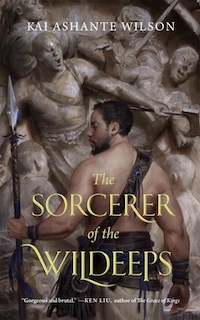 The Sorcerer of the Wildeeps follows Demane, a demigod masquerading as human and working for a merchant caravan. His fellow guards know he’s special, but not how special, and he’s careful to keep it under wraps. Also keeping secrets is the caravan’s Captain, a beautiful man with a past that casts long shadows. As if two not-humans keeping their identities and relationship on the down-low wasn’t enough, a strange monster is stalking the road to the Wildeeps, and their caravan isn’t safe.
The Sorcerer of the Wildeeps follows Demane, a demigod masquerading as human and working for a merchant caravan. His fellow guards know he’s special, but not how special, and he’s careful to keep it under wraps. Also keeping secrets is the caravan’s Captain, a beautiful man with a past that casts long shadows. As if two not-humans keeping their identities and relationship on the down-low wasn’t enough, a strange monster is stalking the road to the Wildeeps, and their caravan isn’t safe.
I loved the interstitial snippets of letters, writings, and folklore between the chapters; the small glimpses of the grander world were fascinating. Wilson’s world-building is both fantastical and science fictional, a thing I am delighted to see more and more of, and he manages to provide clarity and context without ever descending into an infodump. On the last page, I was not ready for it to be over (and also I needed a tissue).
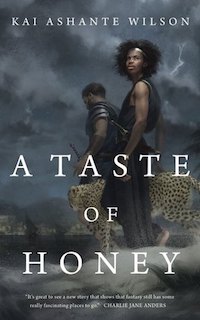 A Taste of Honey initially disappointed me in that it didn’t follow Demane, but then I got over it. Instead we meet Aqib, a beast-master, fourth son, and a bit of an outcast in his family, and Lucrio, a soldier with a visiting embassy. They meet, they fall in love — but nothing is simple. In Aqib’s country homosexuality is forbidden, and his older brother doesn’t scruple to use violence to send a message. Will Aqib leave his home and his family, who he loves regardless, for a soldier he’s known barely a week? When the twist comes in this book, it actually dropped my jaw.
A Taste of Honey initially disappointed me in that it didn’t follow Demane, but then I got over it. Instead we meet Aqib, a beast-master, fourth son, and a bit of an outcast in his family, and Lucrio, a soldier with a visiting embassy. They meet, they fall in love — but nothing is simple. In Aqib’s country homosexuality is forbidden, and his older brother doesn’t scruple to use violence to send a message. Will Aqib leave his home and his family, who he loves regardless, for a soldier he’s known barely a week? When the twist comes in this book, it actually dropped my jaw.
Wilson has a talent for taking a seemingly small, private story and giving it opportunities to shoot light into the broader world of the books. You’ll notice hints of ancient Rome and Africa, but Wilson has taken those threads and made them his own. He’s also given his characters beautifully distinct voices and dialects — the different “accents” of the caravan guards in Sorcerer, or the playful lessons in grammar Aqib and Lucrio give each other in Honey, were just as important in fleshing out their world as any description of setting or culture or custom.
I am ready and waiting. Where’s the next one?



